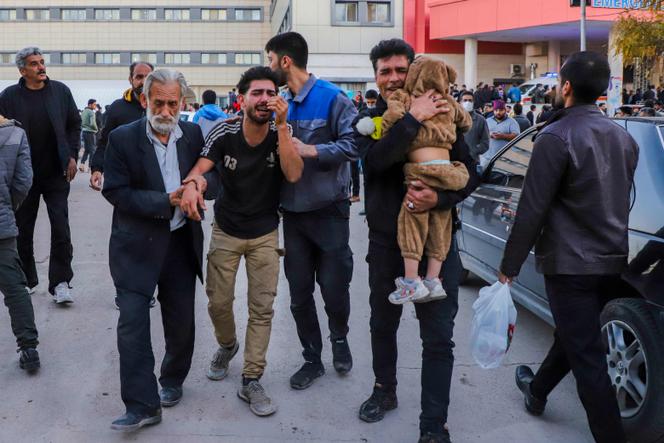


On Wednesday, January 3, the Islamic Republic of Iran suffered the deadliest attack in its history, resulting in the deaths of at least 84 people. It took place as Tehran commemorated the death of Qasem Soleimani, the commander of external operations for the Revolutionary Guards (the country's ideological army), killed on January 2, 2020, in Baghdad, by an American drone strike. Within minutes of each other, two bombs exploded in the southern city of Kerman, near the Saheb al-Zaman Mosque where the general is buried, as a large crowd visited his grave.
According to Tasnim, a news agency affiliated with the Revolutionary Guards, the perpetrators of the attack detonated from a distance two explosive-laden bags placed at the entrance to the Kerman cemetery. Three officers and six children were among the victims. This attack, which had not been claimed on Thursday morning, comes against a backdrop of heightened regional tension since the Hamas attack on Israel on October 7, 2023, which resulted in the deaths of 1,200 people and the capture of some 240 hostages, and the outbreak of the war in Gaza, which has claimed the lives of over 22,000 Palestinians.
The day before the double attack in Kerman, on January 2, Saleh al-Arouri, the number two in Hamas's political bureau, and six other officials of the Islamist movement were killed in Beirut by a drone strike attributed to Israel. A few days earlier, on December 25, 2023, Iran accused Israel of killing the highest-ranking member of Syria's Revolutionary Guard Corps, Brigadier General Razi Mousavi, in a missile strike. Iran's leaders promised retaliation. "Israel committed a strategic mistake, and their crimes will not remain unanswered," said Mohammad Bagheri, chief of staff of Iran's Armed Forces, the following day.
The timing of the attack is no coincidence. A key figure in the "axis of resistance" – a coalition of states and non-state actors whose ranks include Iraqi Shiite militias, the Syrian regime, Hezbollah in Lebanon and the Houthi rebels in Yemen – Soleimani was the architect of Iran's regional military activities. The general had also been at the forefront of the fight against the Islamic State (IS) organization.
Shortly after the double bombing in Kerman, on the social media platform X (formerly Twitter), Iranian Supreme Leader Ali Khamenei, the country's highest authority, threatened those responsible for the explosions with a "harsh response." President Ebrahim Raisi promised that Iran's security services would soon identify and punish the perpetrators "for their heinous act." Neither leader pointed the finger at any particular foreign country or military group. As of Thursday morning, the Iranian Ministry of Intelligence had not yet attributed responsibility for the two explosions.
You have 60% of this article left to read. The rest is for subscribers only.
